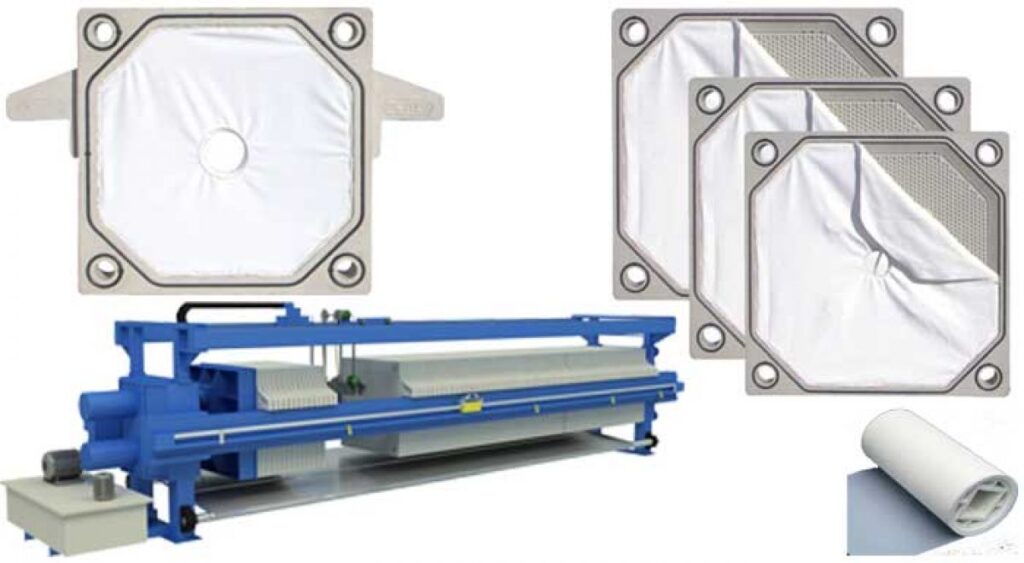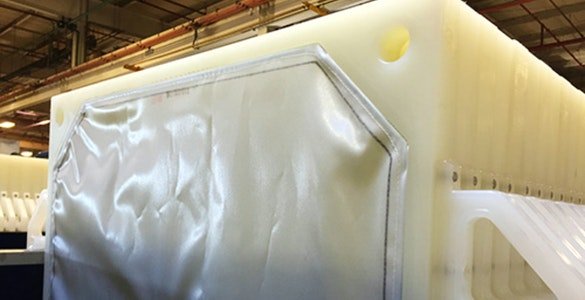Learn about the significance of filter press cloth in filtration processes through this comprehensive article. Understand the features and benefits of this essential component for achieving effective filtration. Explore the various applications of filter press cloth in industries such as wastewater treatment, chemical processing, and pharmaceuticals. Consider the composition, types, and maintenance requirements of filter press cloth to ensure optimal filtration performance.
Features and Composition of Filter Press Cloth
Filter press cloth is a key component in filter presses used for solid-liquid separation. It is typically made of woven or non-woven materials such as polyester, polypropylene, or nylon. Filter press cloth is designed to withstand high pressures and resist chemical corrosion. Its porous structure allows for effective filtration while retaining solid particles, ensuring clean filtrate and efficient separation.
Types of Filter Press Cloth
There are various types of filter press cloth available to meet specific filtration requirements. The selection depends on factors such as the nature of the filtrate, particle size, and operating conditions. Some common types include monofilament cloth, multifilament cloth, and felted cloth. Each type offers unique characteristics such as high tensile strength, chemical resistance, or extended lifespan, catering to different industrial applications.
Applications of Filter Press Cloth
Filter press cloth finds extensive applications in industries such as wastewater treatment, chemical processing, mining, and pharmaceuticals. In wastewater treatment plants, a filter press cloth is used to separate solids from liquid streams, ensuring compliance with environmental regulations. Chemical processing industries utilize filter press cloth for separating impurities and recovering valuable products. The pharmaceutical industry relies on filter press cloth for sterile filtration and purification of drugs and pharmaceutical intermediates.
Maintenance of Filter Press Cloth
Proper maintenance of filter press cloth is essential to ensure optimal filtration performance and extend its lifespan. Regular cleaning and rinsing are necessary to prevent clogging and maintain the cloth’s permeability. Chemical compatibility should be considered when selecting cleaning agents to avoid damaging the cloth’s fibers. Additionally, regular inspections and timely replacement of worn-out or damaged filter press cloth are crucial to maintain efficient filtration.

Example: Filter Press Cloth in Wastewater Treatment
In wastewater treatment plants, filter press cloth plays a vital role in the dewatering process. The cloth acts as a barrier, allowing water to pass through while retaining solid particles. By selecting the appropriate filter press cloth with the right pore size and chemical resistance, wastewater treatment plants can achieve efficient solid-liquid separation. This ensures compliance with discharge regulations, reduces disposal costs, and facilitates the recovery of valuable resources from the wastewater.
Conclusion
In conclusion, filter press cloth is a critical component in achieving efficient filtration processes. Its features, composition, and maintenance requirements directly impact filtration performance and equipment longevity. Consider the specific filtration needs of your industry and choose the appropriate filter press cloth type to optimize filtration efficiency. Regular maintenance, cleaning, and timely replacement of filter press cloth are essential for sustained filtration performance. By understanding the significance and benefits of filter press cloth, you can enhance the effectiveness of your filtration systems.

